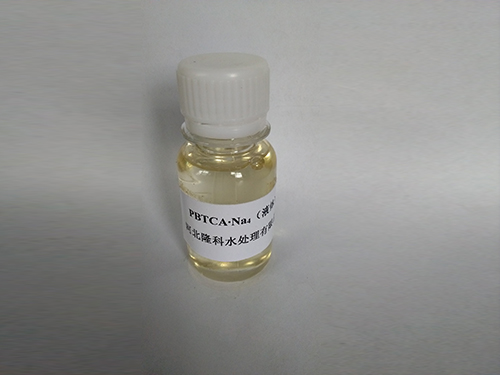The application of circulating water treatment agents in power plants mainly includes the following categories:

1. Composite scale and corrosion inhibitor: Before the operation of the unit, the commonly used industrial circulating water chemicals are added at once according to the amount of water, and the concentration of the chemicals is controlled at 10mg/L. During the operation of the unit, the chemicals are added in a 1:3 ratio into the chemical tank, diluted with clean water, pumped into the mixer by a metering pump for mixing, and then allowed to enter the circulating pool. Control the organic phosphorus concentration in the circulating water to be greater than or equal to 1.5 mg/L, and regularly discharge the circulating water. Depending on the concentration of copper ions in the water, add an appropriate amount of water-soluble copper corrosion inhibitor to control it.
2. Fungicides: Add oxidizing fungicides during the operation of the unit. Oxidized fungicides, as conventional fungicides, can cause corrosion to equipment and facilities due to their oxidizing properties. Therefore, it is necessary to control the dosage, effective chlorine should be controlled at around 1 mg/L, which is safer, and the sterilization time should be controlled. Non oxidizing fungicides should also be added during the operation of the unit, usually in spring, summer, and autumn, with monthly or seasonal impact dosing.
3. Polyferric sulfate: Polyferric sulfate can be used in power plants to treat different types of wastewater. This type of power plant water treatment agent has technical and economic advantages in water treatment, and can solve problems such as high drug consumption and difficult dehydration when other agents treat water quality, thereby greatly reducing the production and operating costs of enterprises. Especially for the treatment and reuse of electroplating wastewater, it is the most economical, effective, and highly applicable water treatment flocculant.
4. Polyaluminum chloride: Before use, a settling ratio test should be conducted to obtain basic data, and then added according to the experimental dosage. The dosage is within the range of 30-120mg/L, and the amount of reagents used to increase or decrease the effluent quality of the filter during operation is observed. Dilute the reagent in a 1:5 ratio with clean water (dilute the solid reagent in a 1:15 ratio), and use a metering pump to pump the solution into the coagulation tower. Active sludge can be added in winter to increase the settling effect.

Address:No.3 North Haohua East Road, Industrial Park, Neiqiu County, Xingtai City, Hebei Province
Website:www.longkehg.com